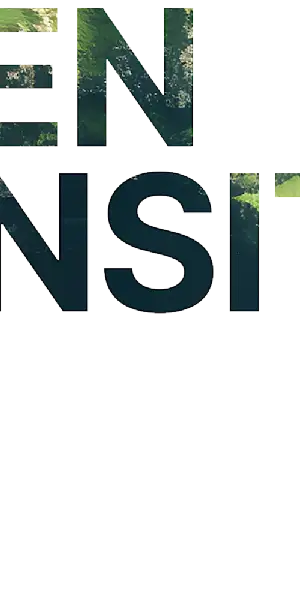Impact - Knowledge

Why we need to act
Understanding the current state of our Earth and the shipping industry is more critical than ever. As the intersection of global trade and environmental responsibility takes center stage, we invite you to delve into the latest on emissions reductions, global trade trends, and significant regulatory developments, including pivotal EU and IMO initiatives. Stay informed, be part of the community, and let's navigate the future of shipping with clarity and purpose.
The state of our earth
Our earth is heating up
According to the latest available data, the world is facing an unprecedented environmental challenge. The consequences of this crisis are becoming increasingly evident, with rising global temperatures leading to a myriad of alarming impacts. Extreme weather events, including hurricanes, droughts, and heatwaves, are becoming more frequent and severe, posing significant threats to communities and ecosystems worldwide.
The shipping industry
Impact of Shipping
The shipping industry plays a significant role in contributing to the climate crisis through its substantial greenhouse gas emissions. Large cargo ships and vessels, powered predominantly by fossil fuels, release massive amounts of carbon dioxide and other pollutants into the atmosphere. These emissions not only worsen global warming but also lead to air pollution and environmental degradation. Addressing this issue is crucial for mitigating the industry's impact on climate change and safeguarding the health of the planet.
Regulations
Decarbonisation regulations in the shipping industry are of utmost importance in addressing the urgent global challenge of climate change. With maritime transport being a significant contributor to greenhouse gas emissions, these regulations aim to reduce the industry's carbon footprint and promote sustainable practices.
IMO Regulations
The International Maritime Organisation (IMO) serves as the United Nations' specialized agency for regulating global shipping. A testament to its dedication to reducing the environmental impact of the maritime sector is the introduction of the Carbon Intensity Indicator (CII) and the outcomes from the Marine Environment Protection Committee's (MEPC) 80th session.

MEPC 80
The outcomes of MEPC 80 have generated substantial discussions and analysis. While many organisations have already set ambitious decarbonisation targets in line with the Paris Agreement, the adoption of the new GHG Strategy is crucial for the industry’s decarbonisation efforts. The MEPC 80 outcomes provide reassurance for early adopters, justifying their investments in low or zero-carbon solutions.

Carbon Intensity Indicator (CII)
The Carbon Intensity Indicator (CII) is an essential regulation implemented by the IMO and also adopted within the EU for ships operating in EU ports. It requires ships to report their carbon intensity, calculated as the amount of CO2 emitted per transport work (e.g., per tonne-mile). This regulation aims to enhance transparency and encourage shipping companies to improve energy efficiency and reduce their carbon emissions. By monitoring and disclosing their carbon intensity, shipowners are incentivised to implement measures that contribute to a more sustainable and environmentally responsible shipping industry.

EU Regulations
EU regulations are crucial for the shipping industry’s decarbonisation because they provide a comprehensive framework and set guidelines for transformation. By incorporating shipping into the EU Emissions Trading System (EU ETS), the regulations establish a market-based mechanism to incentivise emission reductions and hold companies accountable for their carbon footprint. Additionally, the focus on alternative fuel infrastructure and energy efficiency standards fosters the adoption of sustainable practices, promotes a shift towards greener shipping operations and contributes to the EU's overall climate goals.
EU ETS
The EU Emissions Trading System (EU ETS) is a pioneering cap-and-trade system designed to limit greenhouse gas emissions from various industries, including aviation and shipping. As of 2023, shipping within the European Economic Area (EEA) falls under the scope of the EU ETS. Shipping companies are required to purchase carbon allowances corresponding to their emissions. This market-based mechanism encourages companies to reduce their carbon footprint, as those exceeding their allocated allowances will face financial penalties. By integrating shipping into the EU ETS, the regulation incentivises the adoption of cleaner technologies, alternative fuels, and sustainable practices, contributing to the overall decarbonisation efforts in the shipping industry.

EU FuelEU Maritime
The EU FuelEU Maritime initiative is a proposal aiming to limit the carbon intensity of maritime fuels used in EU ports which will enter into force from 1 January 2025. This regulation, which is part of the European Green Deal, aims to promote the uptake of low-carbon and zero-emission fuels by setting targets for the share of sustainable fuels in the shipping industry's energy mix. By establishing a framework that encourages the use of cleaner fuels, such as hydrogen and ammonia, the EU FuelEU Maritime initiative accelerates the transition to more environmentally friendly shipping operations, reducing greenhouse gas emissions and fostering a greener and more sustainable maritime sector within the EU.

Monitoring, Reporting, and Verification (MRV)
The MRV regulation is another significant measure established by the EU for ships exceeding certain tonnage thresholds that operate within EU waters. Under this regulation, shipping companies are required to monitor and report their annual carbon emissions, fuel consumption, and other relevant data. This comprehensive reporting process allows authorities to gain insights into the industry's environmental impact and identify opportunities for emission reduction. MRV promotes accountability and helps shipping companies to make informed decisions regarding energy efficiency measures and emission reduction strategies, fostering the transition towards a greener maritime sector.
You want to make an impact?